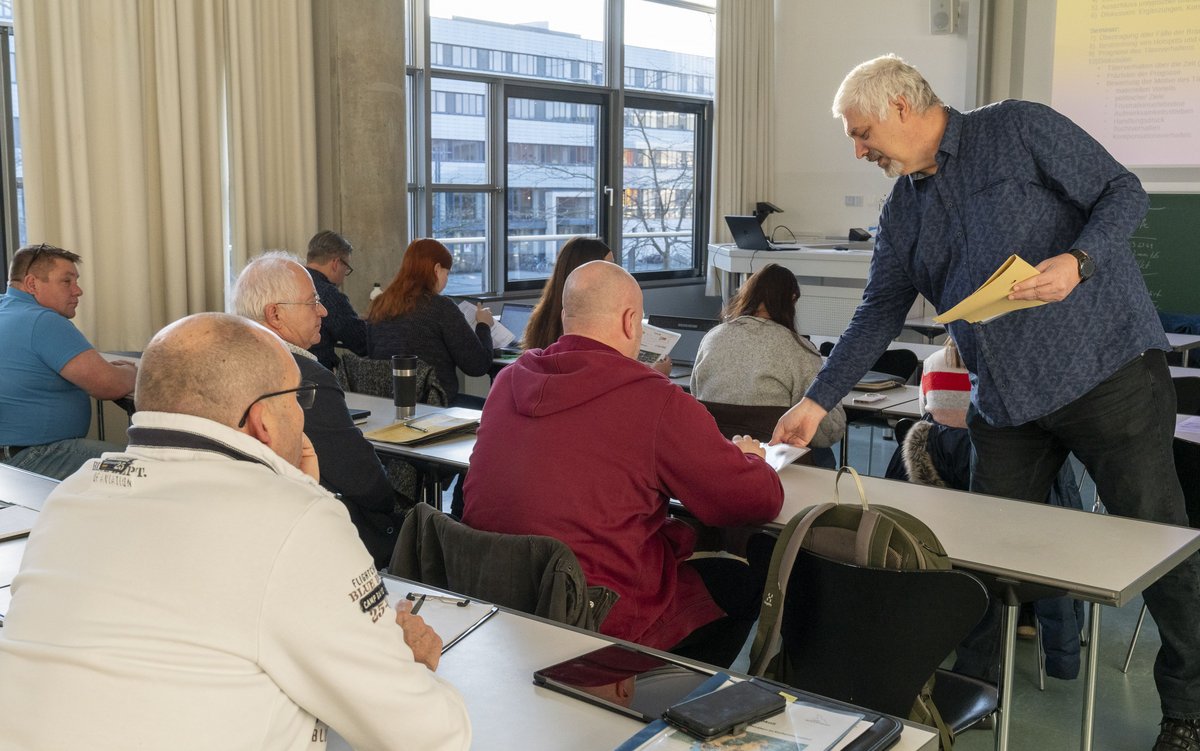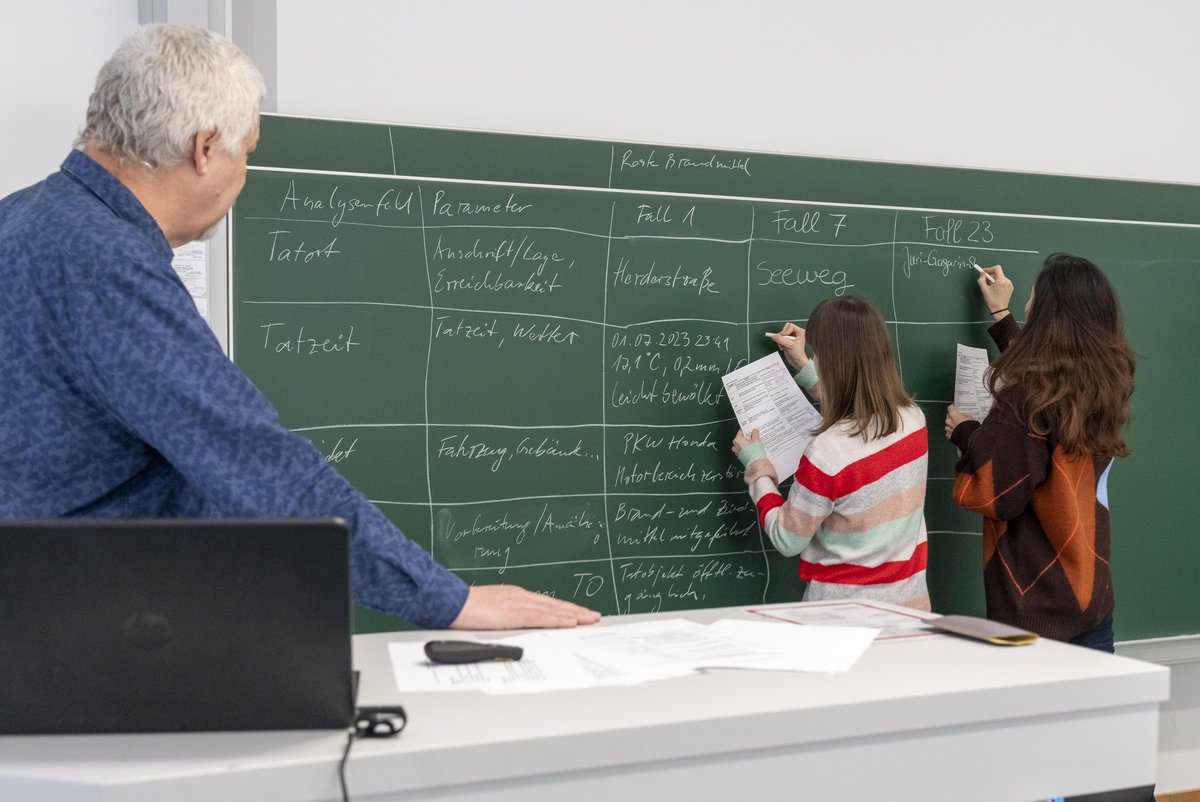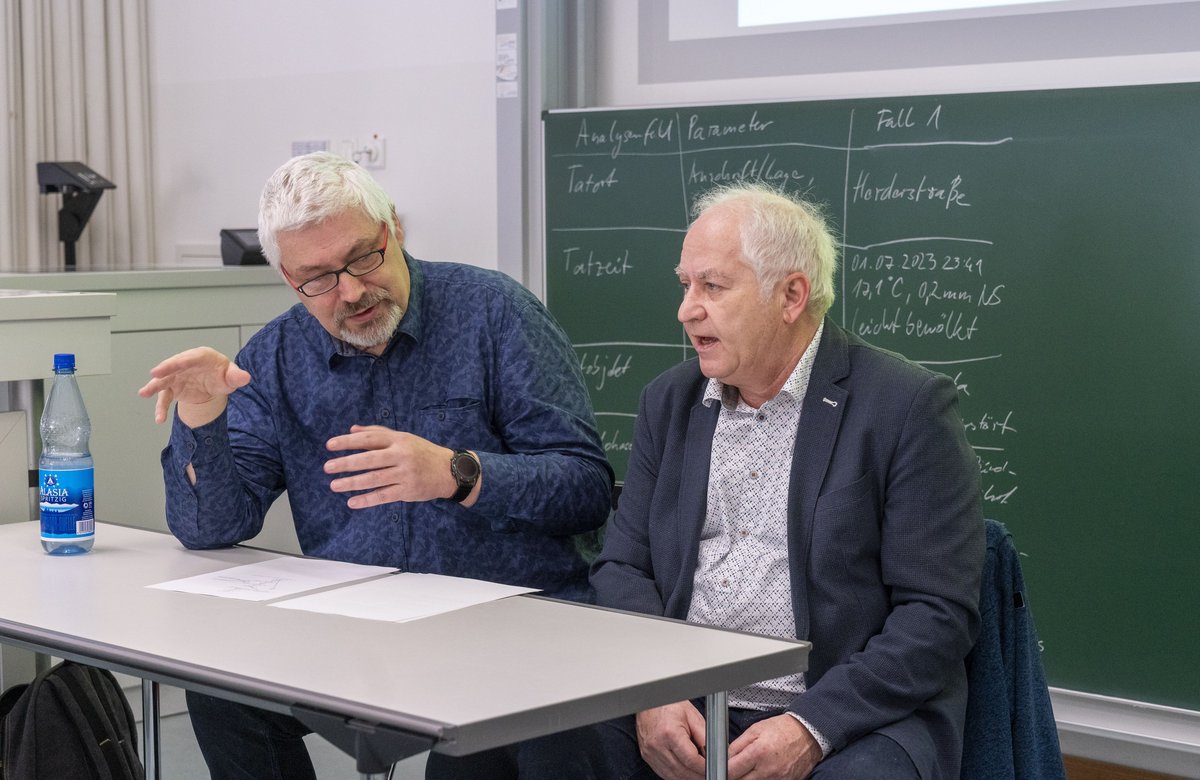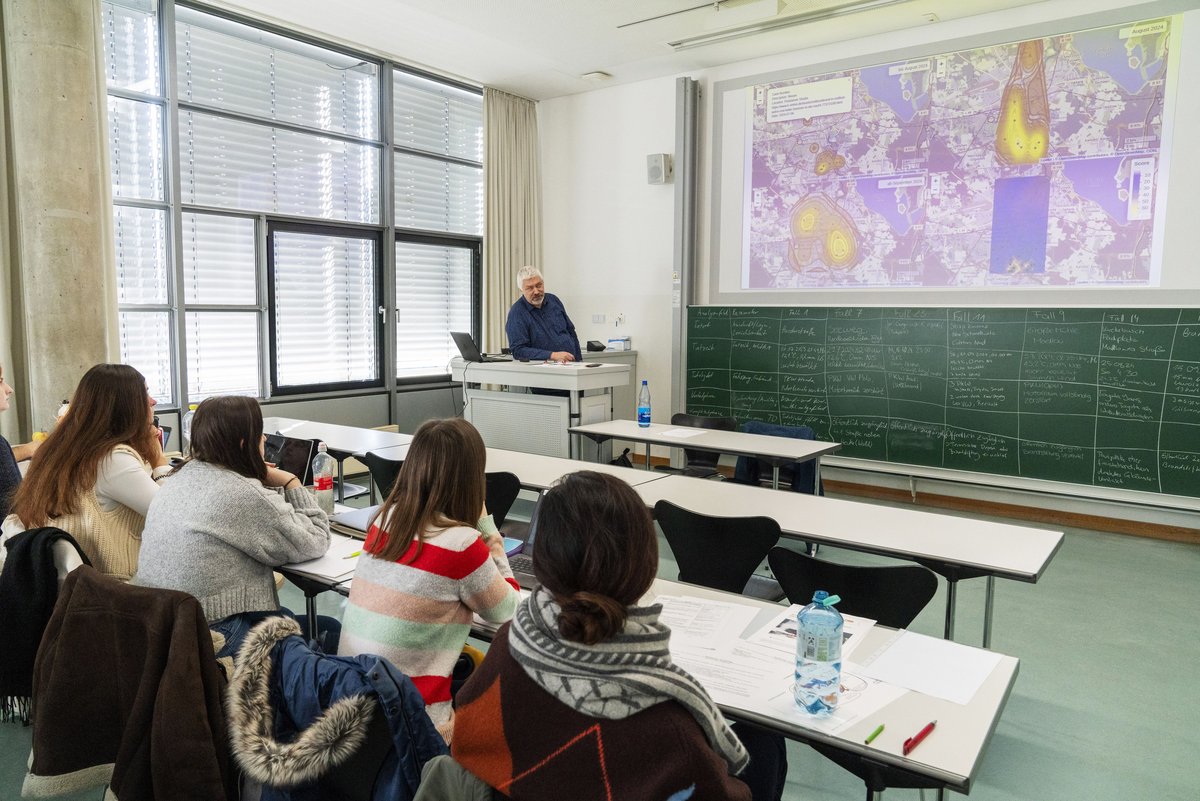Fire investigation: the study programme at BTU Cottbus-Senftenberg!
The police in Cottbus have identified a series of car arsons. This began in the summer of 2024 and is now being investigated by Prof. Dr Thomas Fischer and his students. The search for the culprit or culprits is the reason for investigating six of 26 fires as part of the Fire Investigation - Chemistry and Physics of Fire certificate programme. The aim of the exercise is to create a perpetrator profile.
It is about compiling facts
The first step is to fill in a table on the blackboard that allows comparisons to be made between the fires. Among other things, data on the scene of the crime, time of the crime, object of the crime or characteristics of the perpetrator are entered. Prof. Fischer explains: "An important point when analysing a case is not to speculate. Don't write anything you don't know." The seminar mainly uses newspaper reports as a source, as neither Prof. Fischer nor the participants are tasked with helping to solve the case. Data from the police is therefore not available, even though the retired LKA investigator Harry Jäkel is on site to increase the knowledge gained with his expertise.
One case cannot be assigned to the series
The second step is to discuss which fires can be attributed to the series and which cannot. This is followed by a geographical analysis. For this purpose, the locations of the burnt vehicles are marked on a map and an attempt is made to derive patterns. Prof. Fischer projects the results onto the wall using a projector and shows which parts of Cottbus are particularly affected and what developments can be observed over the course of the series. Finally, the students compile questions, draw up predictions and gradually work out a perpetrator profile. Incidentally, the hypothesis that a pyromaniac is at work who sets cars on fire primarily to alleviate his addiction is rejected.
More information on the certificate programme
Investigating the causes of fires is one of the most difficult and time-consuming tasks for the police. As there are countless traces at a fire scene, these must be professionally recognised, secured and analysed. The team of experts led by Prof. Dr Thomas Fischer teaches what needs to be taken into account, which standards need to be met and how to prepare a correct fire report in the studies leading to certification in Fire Investigation - Chemistry and Physics of Fire.
The professional development programme, which is unique in Germany, lasts two semesters and concludes with a Certificate of Advanced Studies (CAS). It is primarily aimed at police fire investigators, fire experts and graduates of the Forensic Sciences and Engineering Master's study programme. Students learn the scientific, legal and forensic fundamentals as well as the scientific methods and their application in investigations (more information on the programme content).
Contact us
Zentrales Analytisches Labor (ZAL)
T +49 (0) 355 69-2840
thomas.fischer(at)b-tu.de
Kommunikation und Marketing
T +49 (0) 355 69-3837
britta.radkowsky(at)b-tu.de




